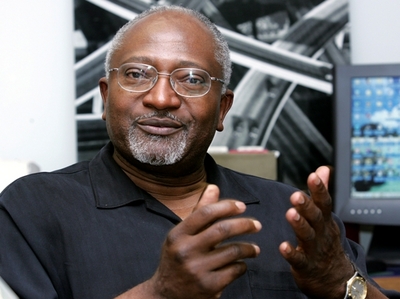 Robert Bullard, Texas Southern University
Robert Bullard, Texas Southern University
How climate-ready is Houston’s most vulnerable low-income and people of color communities? With support from the United States Climate Action Network (USCAN), the Barbara Jordan-Mickey Leland School of Public Affairs at Texas Southern University is hosting the Houston Climate Justice Roundtable on Friday December 13, 2013 (6:30pm – 8:30pm, 114 McCoy Auditorium, School of Public Affairs Building). The roundtable event is a follow-up activity of the Invisible Houston Revisited Policy Summit held this past November and kicks off the Houston Environmental Justice Climate Action Network (HEJCAN), a multi-ethnic network TSU is helping organize.
The theme of the roundtable focuses on the efforts Houston is making to become a more resilient, sustainable and environmentally just city in the face of extreme weather and other climate change impacts. A recent World Bank study predicts by 2050, Houston will have the seventh-largest percentage increase in average annual economic losses from sea-level rise in the world. A 2013 Center for American Progress report, Storm-Ready Cities, lists Houston as one of five cities in the U.S that is “taking climate preparation seriously,” including factoring climate change risks into infrastructure, building designs, public health planning for adapting to more extreme heat, floods, and droughts, and taking the lead to build resilience that supports economic growth and other pressing challenges.
 The roundtable will highlight the climate gap, inequity, social vulnerability, and environmental challenges that burden low-income and people of color communities and place them at special risk. Using a social equity lens, the Climate Justice Roundtable seeks to shed light on a number of questions: What steps are being taken in Houston to deal with the impacts of climate change? What actions have been taken to identify and address climate change and environmental justice challenges in the city’s most vulnerable communities? What policy strategies are needed to eliminate the climate gap and vulnerability? What is the state of environmental justice and climate change programs, policies, and nongovernmental organization (NGO) infrastructure in the Houston area? What are some of the major challenges and opportunities to climate change progress and building a racially and ethnically diverse Houston Environmental Justice Climate Action Network?
The roundtable will highlight the climate gap, inequity, social vulnerability, and environmental challenges that burden low-income and people of color communities and place them at special risk. Using a social equity lens, the Climate Justice Roundtable seeks to shed light on a number of questions: What steps are being taken in Houston to deal with the impacts of climate change? What actions have been taken to identify and address climate change and environmental justice challenges in the city’s most vulnerable communities? What policy strategies are needed to eliminate the climate gap and vulnerability? What is the state of environmental justice and climate change programs, policies, and nongovernmental organization (NGO) infrastructure in the Houston area? What are some of the major challenges and opportunities to climate change progress and building a racially and ethnically diverse Houston Environmental Justice Climate Action Network?
In addition to the expert panel, the roundtable will also assemble a half-dozen or so community leaders who will serve as “respondents” and who will help lead the discussion.
ROUNDTABLE PANELISTS
- Dr. Robert D. Bullard, Dean, Barbara Jordan-Mickey Leland School of Public Affairs, Texas Southern University and co-author of Environmental Health and Racial Equity in the United States: Building Environmentally Just, Sustainable and Livable Communities (APHA Press 2011) and The Wrong Complexion for Protection: How the Government Response to Disasters Endanger African American Communities (NYU Press 2012).
- Ms. Nadia J. Siddiqui, Senior Policy Analyst, Texas Health Institute and lead author of Climate Change , Environmental Challenges and Vulnerable Communities: Assessing Legacies of the Past, Building Opportunities of the Future (Texas Health Institute 2012), a report completed for the Joint Center for Political and Economic Studies Commission to Engage African American on Climate Change.
- Ms. Jennifer Ronk, Program Director, Environmental Science and Energy Efficiency, Houston Advanced Research Center (HARC), lead researcher on Houston plan for climate-change impacts on municipal operations.
- Dr. Beverly Wright, Director of the Deep South Center for Environmental Justice at Dillard University of New Orleans and co-author of Race, Place and Environmental Justice After Hurricane Katrina: Struggles to Rebuild, Reclaim and Revitalize New Orleans and the Gulf Coast (Westview Press 2009) and The Wrong Complexion for Protection: How the Government Response to Disasters Endanger African American Communities (NYU Press 2012).
- The Honorable Rodney Ellis, Texas State Senator from Houston and co-chair of the Joint Center for Political and Economic Studies Commission to Engage African Americans on Climate Change (invited).
The event is free and open to the public. For information on registration, click HERE.
